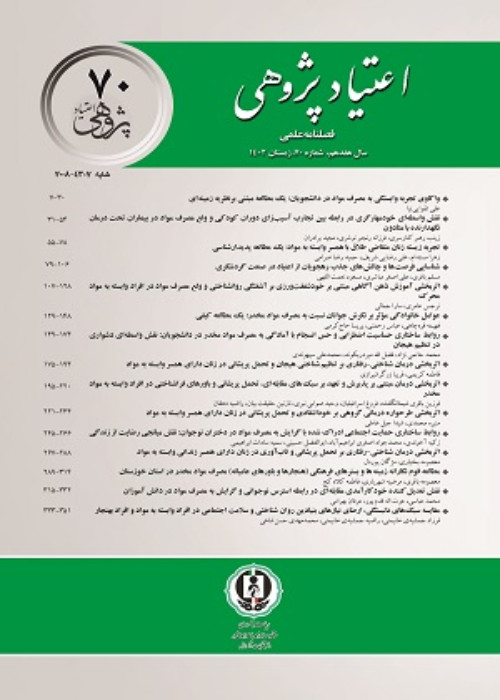Structural Relationships of Risk-Taking and Difficulty in Emotion Regulation with Tendency to Addiction Relapse in Patients Undergoing Methadone Maintenance Treatment: Mediating Role of Distress Tolerance and Cognitive Flexibility
The aim of this study was to investigate the structural relationships between risk-taking and difficulty in emotion regulation with a tendency to addiction relapse in patients undergoing methadone maintenance therapy with respect to the mediating role of distress tolerance and cognitive flexibility.
The research design was descriptive-correlation of structural equations. The statistical population included all addicts undergoing methadone maintenance treatment in Rasht City in 2019. A sample of 260 subjects were selected by consecutive sampling method. Data were collected through cognitive flexibility, distress tolerance, difficulty in emotional regulation, risk-taking tests and brief substance craving scale.
The final model after correction (i.e., eliminating the difficulty in emotion regulation path towards the tendency to relapse) and releasing a number of covariance errors fit well with the data. The results revealed that the direct path coefficients between risk-taking with cognitive flexibility and distress tolerance are negative and significant and with a tendency to addiction relapse are positive and significant. Also, the direct path between difficulty in emotion regulation with cognitive flexibility and distress tolerance was negative and significant. The relationship between mediating variables, namely cognitive flexibility and distress tolerance with the tendency to addiction relapse was negative and significant. Indirect pathways of risk-taking and difficulty in emotion regulation toward the tendency to addiction relapse through mediation of cognitive flexibility and distress tolerance were significant.
Risky behaviors and low ability to regulate intense emotions are the triggers of addiction relapse and it is suggested that booster skills of behavioral control and emotion regulation be included in the therapeutic program for addicts undergoing treatment and interventions are planned to improve cognitive flexibility and increase distress tolerance.
- حق عضویت دریافتی صرف حمایت از نشریات عضو و نگهداری، تکمیل و توسعه مگیران میشود.
- پرداخت حق اشتراک و دانلود مقالات اجازه بازنشر آن در سایر رسانههای چاپی و دیجیتال را به کاربر نمیدهد.




